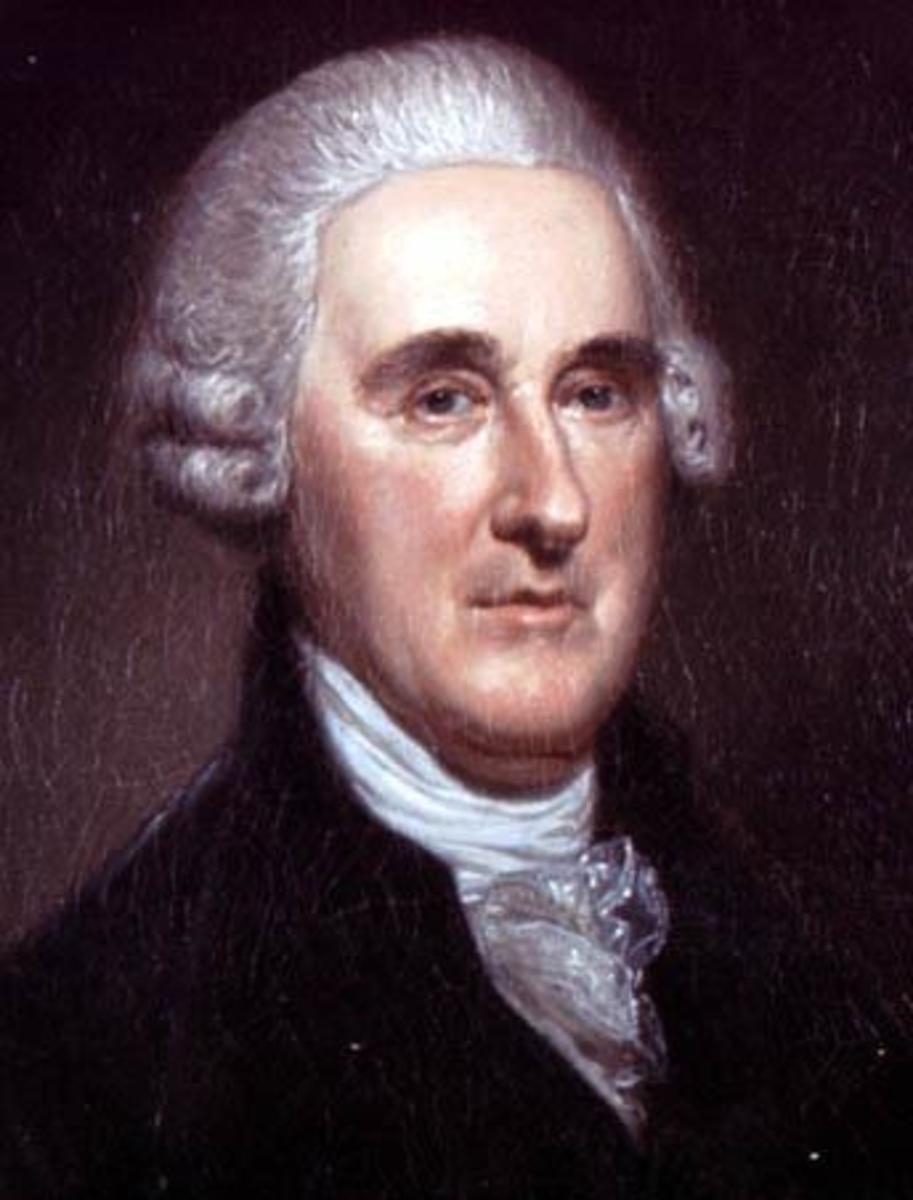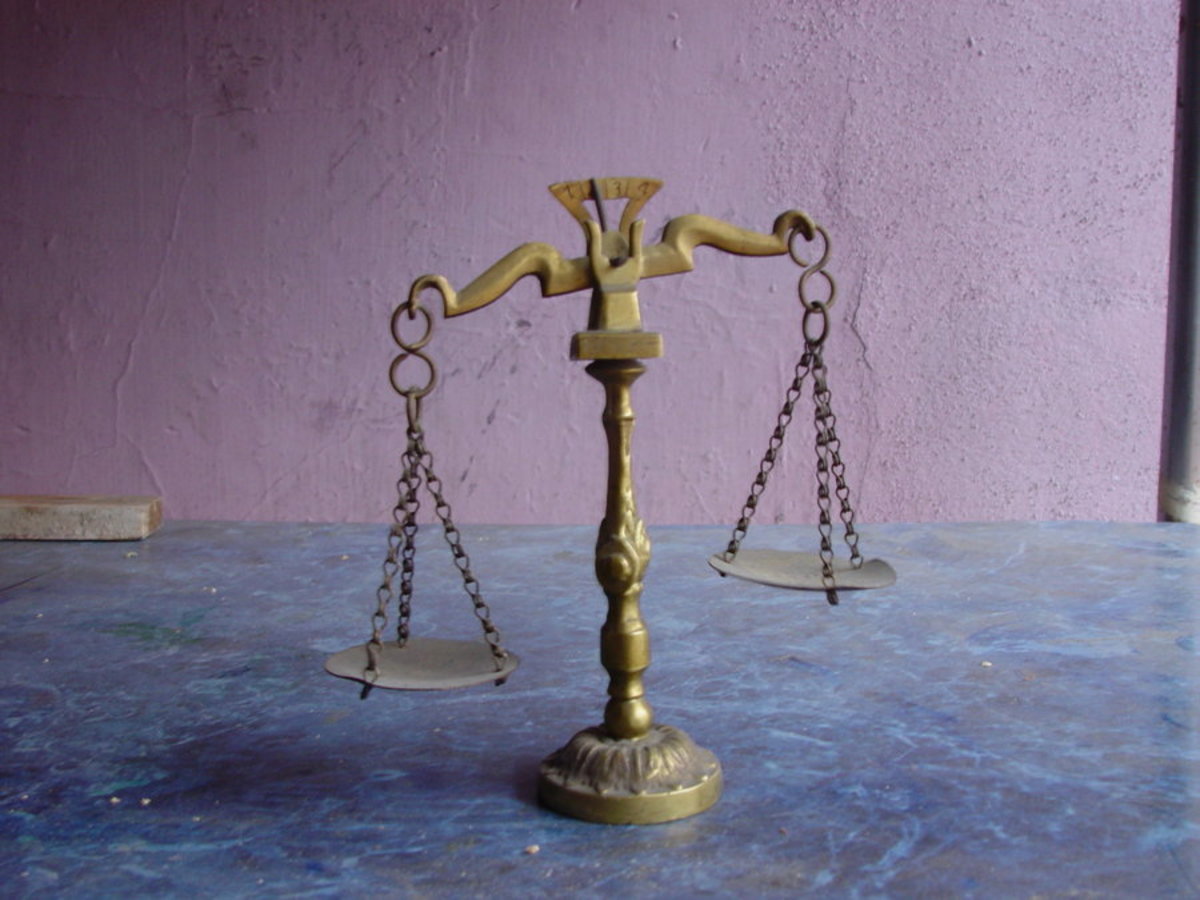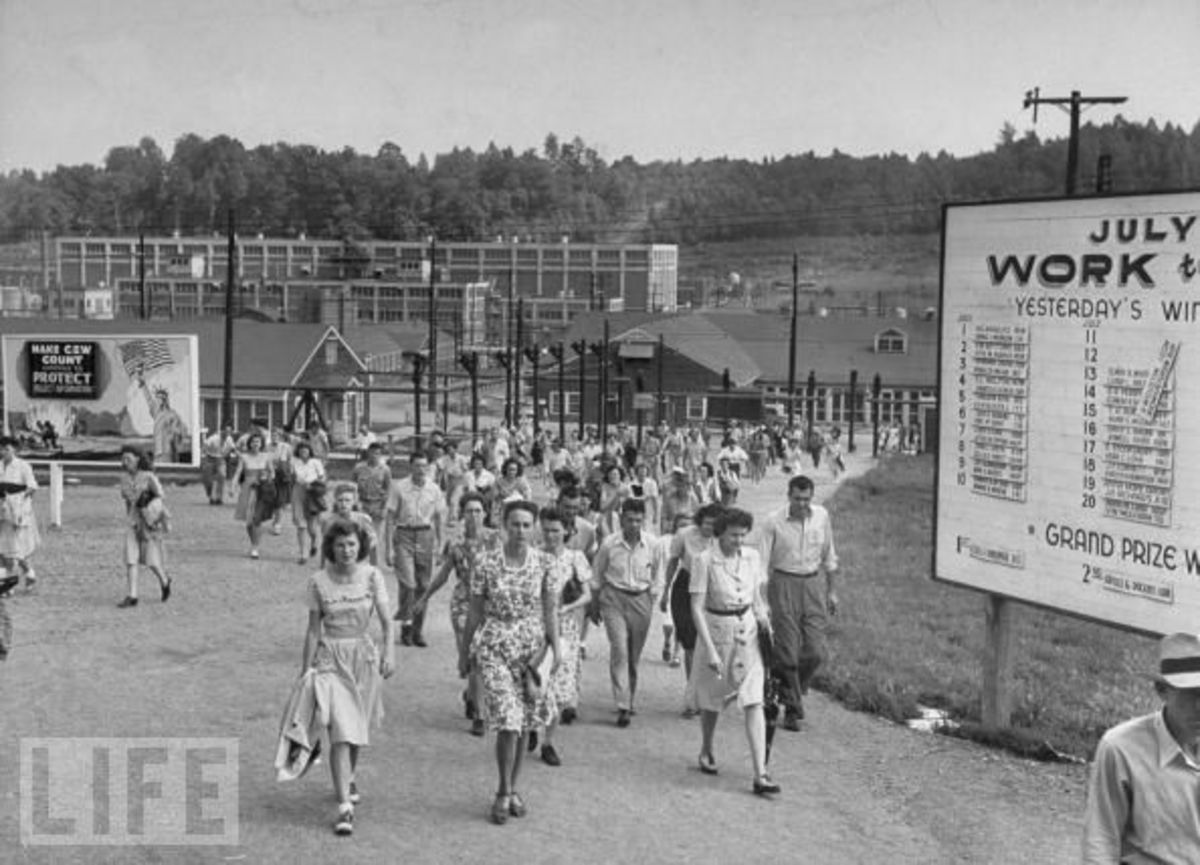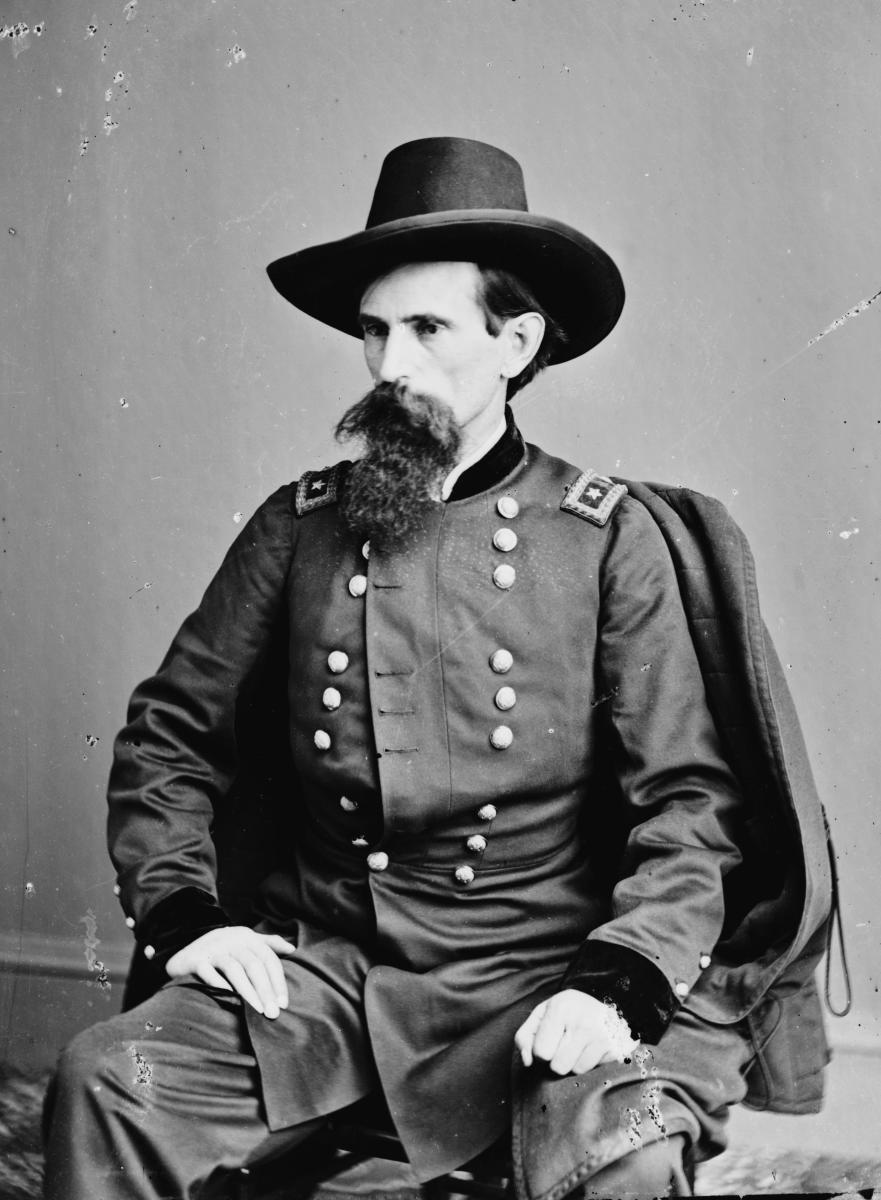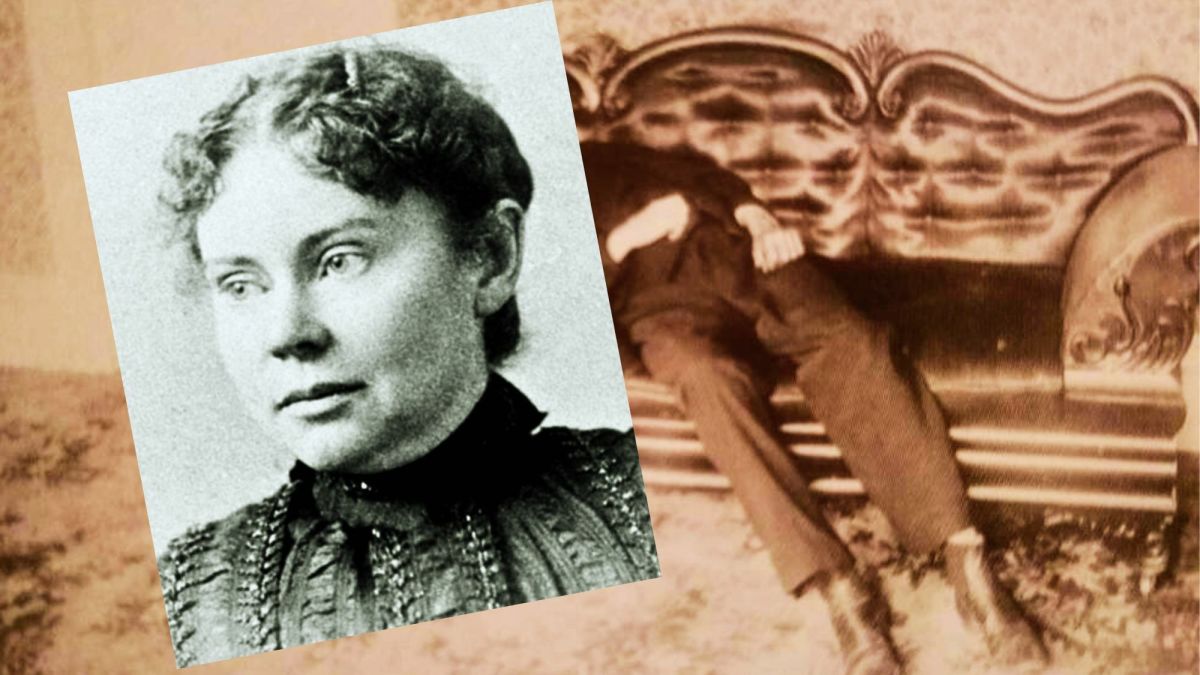- HubPages»
- Education and Science»
- History & Archaeology»
- History of the Americas
Do You Know What the Amendments of the U.S. Constitution Really Say? Should You Care? Part 2

Do You Know What The Amendments of the U.S. Constitution Really Say? Should You Care? Part 2
If you had the chance to read part 1 of this series you should have been challenged by the question “Do you really know what the Amendments of the U.S. Constitution really say and why should you care?’ In this article we will cover in detail Amendments 4 through 8.
To start with let’s take a look at Amendment 4 but first what do you think the 4th Amendment says?
- The right of the people to be secure in their homes or persons should be depended upon the circumstances that may be prevalent. In an emergency they or their possessions can be seized without a warrant. Nope, that is the wrong answer. How about…
- If someone swears in good faith that a fellow citizens has committed a crime the police can knock on the suspects home door and demand that they let them in to search their home for evidence without a warrant, and the person must by law let them in. Sorry, wrong again. How about….
3. The right of the people to be secure in their person, houses, papers, and effects, against unreasonable searches and seizures, shall not be violated, and no Warrants shall issue, but upon probable cause, supported by Oath or affirmation, and particularly describing the place to be searched, and the person or things to be seized. Yes, finally! This is the correct answer.
Now let us look at some of the writings of the original Founding Fathers to see what they had in mind when they decided what the 4th Amendment should say and how it should be interrupted.
From Document 9
Virginia Declaration of Rights, sec. 10
12 June 1776
10. That general warrants, whereby any officer or messenger may be commanded to search suspected places without evidence of a fact committed, or to seize any person or persons not named, or whose offence is not particularly described and supported by evidence, are grievous and oppressive, and ought not to be granted. (1)
From House of Representatives, Amendments to the Constitution
17 Aug. 1789 Annals 1:754
The committee went on to the consideration of the seventh clause of the fourth proposition, being as follows: "The right of the people to be secured in their persons, houses, papers, and effects, shall not be violated by warrants issuing without probable cause, supported by oath or affirmation, and not particularly describing the place to be searched, and the persons or things to be seized."
Mr. Gerry said he presumed there was a mistake in the wording of this clause; it ought to be "the right of the people to be secure in their persons, houses, papers, and effects, against unreasonable seizures and searches," and therefore moved that amendment.
Mr. Benson objected to the words "by warrants issuing." This declaratory provision was good as far as it went, but he thought it was not sufficient; he therefore proposed to alter it so as to read "and no warrant shall issue."
The question was put on this motion and lost by a considerable majority.
Mr. Livermore objected to the words "and not" between "affirmation" and "particularly." He moved to strike them out, in order to make it an affirmative proposition.
But the motion passed in the negative.The clause as amended being now agreed to. (2)
From Document 11
Massachusetts Constitution of 1780, PT. 1, ART. 14
Thorpe 3:1891
XIV. Every subject has a right to be secure from all unreasonable searches, and seizures of his person, his houses, his papers, and all his possessions. All warrants, therefore, are contrary to this right, if the cause or foundation of them be not previously supported by oath or affirmation, and if the order in the warrant to a civil officer, to make search in suspected places, or to arrest one or more suspected persons, or to seize their property, be not accompanied with a special designation of the persons or objects of search, arrest, or seizure: and no warrant ought to be issued but in cases, and with the formalities prescribed by the laws. (3)
From Document 10
Maryland Constitution of 1776, Declaration of Rights, art. 23
Thorpe 3:1688
That all warrants, without oath or affirmation, to search suspected places, or to seize any person or property, are grievous and oppressive; and all general warrants--to search suspected places, or to apprehend suspected persons, without naming or describing the place, or the person in special--are illegal, and ought not to be granted. (4)
Some may say, “Well if you don’t have anything to hide, why would you not let the police enter your house?”
Now that you have had a chance to examine some of the writings in regard to this amendment you should be able to get some understanding what the Founding Fathers intended that is they wanted the citizens of this nation to be able to feel safe and secure in their own homes without having to fear that dreaded knock on the door at midnight by the police because some neighbor who happens to not like the way they look or their religion filed an anonymous complaint about them to the authorities. It also gives us the right not to be when we are out and about stopped and asked for our identification just because of the way we look when there is no reasonable evidence that we are suspected to have committed a crime. In order for our persons, our homes, or the places where we work to be searched for evidence of a crime, the police or any other agent such as the F.B.I. must have a warrant by a judge based on reasonable suspicion that a crime has been committed and that there is a high probability that you are a suspect in the crime by credible witnesses, that is, they are not making it up because of bias against the suspect or they are out for revenged because of some personal spat.
Some may say, “Well if you don’t have anything to hide, why would you not let the police enter your house?” Well, just because the police show up to your house and they don’t have a warrant based on a reasonable assumption that 1. A crime was committed and 2. If there is no reason that you are a suspect why should they be knocking at your door in the first place? Just because you exercise your right according to the 4th Amendment is not an indication of your guilt. Remember, according to the law in the United States you are innocent until proven guilty beyond a reasonable doubt.
Now let’s take a look at Amendment 5. See if you know what it really says. Does Amendment 5 say the following:
- Any person shall be held to be answerable for a capital, or otherwise infamous crime even though there is no presentment or indictment of a Grand Jury and whenever necessary a person may be subject for the same offense twice, a person may be compelled in any criminal case to be a witness against himself and deprived of life, liberty or property without due process of law when it is necessary for the security of the State, and furthermore, private property be taken for public use without just compensation. Wrong! That is not the correct answer. How about….
- Only persons with incomes that do not exceed $100,000 a year shall not be held answerable for a capital, or otherwise infamous crime, unless on a presentment or indictment of a Grand Jury, except in cases rising in the land or naval forces, or in the Militia, when in actual service in time of War or public danger; nor shall be compelled in any criminal case to be witness against himself, nor be deprived of life, liberty or property, without due process of law; nor shall private property be taken for public use without just compensation except for those whose income has risen above $100,000 a year. Nope, wrong again! How about…
- No person shall be held to be answered for a capital, or otherwise infamous crime, unless on a presentment or indictment of a Grand Jury, except in cases rising in the land or naval forces, or in the Militia, when in actual service in time of War or public danger; nor shall any person be subject for the same offense to be twice put in jeopardy of life or limb, nor shall be compelled in any criminal case to be a witness against himself, nor be deprived of life, liberty or property, without due process of law; nor shall private property be taken for public use without just compensation. Yes! This is the correct answer.
In order to understand what the original intent of Amendment 5 was and not the spin that some people have put on it we need to take a look at some of the original writings of the Founding Fathers in regard to the 5th Amendment.
From Document 10
Virginia Declaration of Rights, sec. 1
12 June 1776
1. That all men are by nature equally free and independent, and have certain inherent rights, of which, when they enter into a state of society, they cannot, by any compact, deprive or divest their posterity.namely, the enjoyment of life and liberty, with the means of acquiring and possessing property, and pursuing and obtaining happiness and safety. (5)
From Document 11
Delaware Declaration of Rights and Fundamental Rules
11 Sept. 1776 Sources 339
10. That every Member of Society hath a Right to be protected in the Enjoyment of Life, Liberty and Property; and therefore, is bound to contribute his Proportion towards the Expense of that Protection, and yield his personal Service when necessary, or an Equivalent thereto, but no Part of a Man's Property can be justly taken from him, or applied to public Uses without his own Consent or that of his legal Representatives: Nor can any Man that is conscientiously scrupulous of bearing Arms in any Case be justly compelled thereto if he will pay such Equivalent.
. . . . .
12. That every Freeman for every Injury done him in his Goods, Lands or Person, by any other Person, ought to have Remedy by the Course of the Law of the Land, and ought to have Justice and Right for the Injury done to him freely without Sale, fully without any Denial, and speedily without Delay, according to the Law of the Land. (6)
From Document 13
Alexander Hamilton, Remarks on an Act for Regulating
Elections, New York Assembly
6 Feb. 1787 Papers 4:35
We had in a former debate, travelled largely over the ground of the constitution, as applied to legislative disqualifications: He would not repeat what he had said, but he hoped to be indulged by the house in explaining a sentence in the constitution, which seems not well understood by some gentlemen. In one article of it, it is said no man shall be disfranchised or deprived of any right he enjoys under the constitution, but by the law of the land, or the judgment of his peers. Some gentlemen hold that the law of the land will include an act of the legislature. But Lord Coke, that great luminary of the law, in his comment upon a similar clause, in Magna Charta, interprets the law of the land to mean presentment and indictment, and process of outlawry, as contradistinguished from trial by jury. But if there were any doubt upon the constitution, the bill of rights enacted in this very session removes it. It is there declared that, no man shall be disfranchised or deprived of any right, but by due process of law, or the judgment of his peers. The words "due process" have a precise technical import, and are only applicable to the process and proceedings of the courts of justice; they can never be referred to an act of legislature. (7)
You may say to yourself, “Oh, if I were being tortured and I know that I was innocent of a crime I would not make a confession of being guilty!”. How do you know? It is easy to say you won’t when your chances for going through such a horrible fate is slim to none.
Now that you have had a chance to examine some of the writings of the Founding Fathers in regards to the 5th Amendment it should be more clear of what they had in mind when they finally finalized the wording of this amendment.
First of all, the Government can’t throw you into prison for suspicion of you having committed a crime with no tangible evidence or on assumption that you may commit a crime because of who you are. In other words, in this country we are not to have consecration camps or gulags. There has to be clear factual evidence in that a Grand Jury would make an indictment a.k.a. ruling that a person should be held for trial for an actual offense not an imaginary one. The only exception is in cases rising in the land or naval forces, or in the Militia, when in actual service in time of War or public danger. This would pertain in matters of military justice where the defendant who is in the military is charged with neglecting his or her duties as a member of the Armed Forces of the United States or worse is accused of aiding the enemy in a time of war which could result in the harm of not only one’s troop but one’s nation as a whole.
Secondly, one cannot be tried for the same crime twice. In other words, if an overzealous prosecuting attorney does not like the final verdict of, for example a murder trial, not guilty he or she cannot demand that the defendant be retried for the same charge in order to get another verdict. Some people may not like this but put yourself or someone that you love in the following position, what if this was not in the 5th amendment and one could be tried for the same offense over and over again until the “right” verdict is made according to certain individuals? You could have people coming out of the “woodwork” and making claims against you or your loved one that could be false. Who knows they could have been promised money if they would testify against you or your loved one.
Thirdly, you cannot be forced to testify against yourself or to state it in another way you cannot be made by force to make a confession that you have committed a crime. In our country, unlike in the Middle Ages or in some countries that have tyrannical regimes, we do not torture people until they say what we want them to say. You may say to yourself, “Oh, if I were being tortured and I know that I was innocent of a crime I would not make a confession of being guilty!”. How do you know? It is easy to say you won’t when your chances for going through such a horrible fate is slim to none.
Fourthly, you cannot be deprived of your life, property or liberty without due process of law which means that you have the right of a fair trial which includes a right to have an attorney to defend you and a right to confront your accusers. What happened in Nazi Germany should never happen in the United States according to the 5th Amendment.
Lastly, your property cannot be taken from you for use by the public without fair compensation. In other words, if you own property it cannot be stolen from you nor should you be forced to sell your property below fair market value to the government for the purpose of ,for example, a freeway or to a company in order for them to build their business on your land.
Now let’s take a look at the 6th Amendment. Which of the following do you believe is the correct wording of the 6th Amendment is it?
- In all criminal prosecutions, the accused may or may not enjoy the right to a speedy and public trial by an impartial jury. It depends on what is going on at the time. The trial may or may not be held in the district in which the crime was committed according to what the judge my decide, and the accused my only have the ability to have assistance of counsel for his defense as long as he or she pays the required fee. Sorry, wrong answer! How about ….
- In all criminal prosecutions, the accused will be tried in a private place which will be determined by the prosecution and furthermore, the decision of when the trial will proceed and whether or not the accused will have access to an attorney or be allowed to question his or her accuser will depend on the approval or disapproval of the judge presiding in the trial. Once again, wrong answer! How about…
3. In all criminal prosecutions, the accused shall enjoy the right to a speedy and public trial, by an impartial jury of the State and district wherein the crime shall have been committed; which district shall have previously ascertained by law, and to be informed of the nature and cause of the accusation; to be confronted by the witnesses against him; to have compulsory process for obtaining witnesses in his favor, and to have the assistance of counsel for his defense. Yes, about time! This is the correct answer.
Now that we found out the correct answer, let’s look at some of the writings in regard to this amendment that the Founding Fathers wrote in order to see what their mindset was when they finalized it.
From Document 17
Connecticut Constitutional
ORDINANCE OF 1776 Poore 1:258
2. And be it further enacted and declared, That no Man's Life shall be taken away: No Man's Honor or good Name shall be stained: No Man's Person shall be arrested, restrained, banished, dismembered, nor any Ways punished: No Man shall be deprived of his Wife or Children: No Man's Goods or Estate shall be taken away from him, nor any Ways damaged under the Color of Law, or Countenance of Authority, unless clearly warranted by the Laws of this State. (8)
From Document 21
Vermont Constitution of 1777, CH. 1, ARTS. 10, 19
Thorpe 6:3741, 3742
X. That, in all prosecutions for criminal offences, a man hath a right to be heard, by himself and his counsel--to demand the cause and nature of his accusation--to be confronted with the witnesses--to call for evidence in his favor, and a speedy public trial, by an impartial jury of the country; without the unanimous consent of which jury, he cannot be found guilty; nor can he be compelled to give evidence against himself; nor can any man be justly deprived of his liberty, except by the laws of the land or the judgment of his peers.
. . . . .
XIX. That no person shall be liable to be transported out of this State for trial, for any offence committed within this State. (9)
From Document 18
Virginia Declaration of Rights, sec. 8
12 June 1776
8. That in all capital or criminal prosecutions a man hath a right to demand the cause and nature of his accusation, to be confronted with the accusers and witnesses, to call for evidence in his favor, and to a speedy trial by an impartial jury of his vicinage, without whose unanimous consent he cannot be found guilty, nor can he be compelled to give evidence against himself; that no man be deprived of his liberty except by the law of the land, or the judgment of his peers. (10)
From Document 19
Delaware Declaration of Rights and Fundamental Rules
11 Sept. 1776 Sources 339
13. That Trial by Jury of Facts where they arise is one of the greatest Securities of the Lives, Liberties and Estates of the People.
14. That in all Prosecutions for criminal Offenses, every Man hath a Right to be informed of the Accusation against him, to be allowed Counsel, to be confronted with the Accusers or Witnesses, to examine Evidence on Oath in his Favor, and to a speedy Trial by an impartial Jury, without whose unanimous Consent he ought not to be found Guilty.
15. That no Man in the Courts of common Law ought to be compelled to give Evidence against himself. (11)
Now that you have had a chance to study these writings in regard to the 6th Amendment, you should understand that all citizens of the United States have the right to a fair and speedy trial with an unbiased jury of one’s peers in the district that he or she lives in. You cannot be held indefinitely before your case is brought to court. Furthermore, you have the right to an attorney to examine all evidence against you from your accusers and in order to provide you a defense.
Now on to the 7th Amendment. Which of the following do you think is the correct one? Is it …?
- In Suites where the value in the controversy is more than twenty dollars and the defendant has an annual income that does not exceed $100,000, the right of trial by jury shall be preserved, and no fact tried by jury shall be otherwise re-examined in any Court of the United States, unless there is crucial evidence in the case that was not made available at the time of the trial. Sorry, this is not the correct answer. What about…
- In Suites where the value in the controversy is more than twenty dollars and the defendant annual income of less than $100,000, the right of trial by jury shall be preserved when a fee of $50 shall be given to the Court by the defendant and whereby if the defendant should be found not guilty it shall be reimbursed to the defendant. And provided that all evidence in the case was made available at the time of the trial, the case cannot be retried. Sorry, wrong again! How about….
- In Suites in common law, where the value in controversy shall exceed twenty dollars, the right of trial by jury shall be preserved, and no fact tried by jury shall be otherwise re-examined in any Court of the United States, than according to the rules of the common law. Yes! Finally, this is the correct one.
Now let’s determine what the Founding Fathers had in mind when they decided on the final wording of this amendment.
From Document 4
Pennsylvania Constitution of 1776, SEC. 25
Thorpe 5:3088
Sect. 25. Trials shall be by jury as heretofore: And it is recommended to the legislature of this state, to provide by law against every corruption or partiality in the choice, return, or appointment of juries. (12)
From Document 5
New Jersey Constitution of 1776, ART. 22
Thorpe 5:2598
XXII. That the common law of England, as well as so much of the statute law, as have been heretofore practiced in this Colony, shall still remain in force, until they shall be altered by a future law of the Legislature; such parts only excepted, as are repugnant to the rights and privileges contained in this Charter; and that the inestimable right of trial by jury shall remain confirmed as a part of the law of this Colony, without repeal, forever. (13)
Now that you have examined some of the writings of the Founding Fathers in regards to the 7th amendment, it should be obvious that what they meant was that in any suit for over a certain amount…
Now that you have examined some of the writings of the Founding Fathers in regards to the 7th amendment, it should be obvious that what they meant was that in any suit for over a certain amount, which in their day was twenty dollars, the defendant had the right by a fair trial by jury, and after the trial is over and a decision was made in the case the matter could not be brought to trial again in any court.
Finally, let’s that a look at the 8th Amendment. What do you think it says? Does it say…
- Excessive bale may in some cases be required, excessive fines may be imposed in some case, and cruel or unusual punishments may be inflicted when it is in the best interest of the State. Nope, that is not the correct answer. How about?
- Excessive bale shall not be required if your annual income is not over $50,000, nor excessive fines imposed for those whose income does not go over $50,000 annually, nor cruel and unusual punishments inflicted unless you one is Politically Incorrect or resides in the “wrong” place. No, that is not the right answer. How about..
- Excessive bale shall not be required, nor excessive fines imposed, nor cruel and unusual punishments inflicted. Yes, this is the right answer.
Now that you know the correct answer. Let’s examine some of the writings of the Founding Fathers in regard to this amendment.
From Document 14
House of Representatives, Amendments to the Constitution
17 Aug. 1789 Annals 1:754
Mr. Smith, of South Carolina, objected to the words "nor cruel and unusual punishments;" the import of them being too indefinite.
Mr. Livermore. --The clause seems to express a great deal of humanity, on which account I have no objection to it; but as it seems to have no meaning in it, I do not think it necessary. What is meant by the terms excessive bail? Who are to be the judges? What is understood by excessive fines? It lies with the court to determine. No cruel and unusual punishment is to be inflicted; it is sometimes necessary to hang a man, villains often deserve whipping, and perhaps having their ears cut off; but are we in future to be prevented from inflicting these punishments because they are cruel? If a more lenient mode of correcting vice and deterring others from the commission of it could be invented, it would be very prudent in the Legislature to adopt it; but until we have some security that this will be done, we ought not to be restrained from making necessary laws by any declaration of this kind.
The question was put on the clause, and it was agreed to by a considerable majority. (14)
From Document 9
Thomas Jefferson to Edmund Pendleton
26 Aug. 1776 Papers 1:505
The fantastical idea of virtue and the public good being a sufficient security to the state against the commission of crimes, which you say you have heard insisted on by some, I assure you was never mine. It is only the sanguinary hue of our penal laws which I meant to object to. Punishments I know are necessary, and I would provide them, strict and inflexible, but proportioned to the crime. Death might be inflicted for murder and perhaps for treason if you would take out of the description of treason all crimes which are not such in their nature. Rape, buggery &c. punish by castration. All other crimes by working on high roads, rivers, gullies &c. a certain time proportioned to the offence.
But as this would be no punishment or change of condition to slaves (me miserum!) let them be sent to other countries. By these means we should be freed from the wickedness of the latter, and the former would be living monuments of public vengeance. Laws thus proportionate and mild should never be dispensed with. Let mercy be the character of the lawgiver, but let the judge be a mere machine. The mercies of the law will be dispensed equally and impartially to every description of men: those of the judge, or of the executive power, will be the eccentric impulses of whimsical, capricious designing man. (15)
From Document 12
Abraham Holmes, Massachusetts Ratifying Convention
30 Jan. 1788 Elliot 2:111
What gives an additional glare of horror to these gloomy circumstances is the consideration, that Congress have to ascertain, point out, and determine, what kind of punishments shall be inflicted on persons convicted of crimes. They are nowhere restrained from inventing the most cruel and unheard of punishments, and annexing them to crimes; and there is no constitutional check on them, but that racks and gibbets may be amongst the most mild instruments of their discipline. (16)
In the regards of the 8th Amendment it should be obvious that in regards to bale or fees to be paid by a defendant, they shall not be ridiculously high in comparison to the crime that a defendant is accused of, and the punishment if they are found guilty after a trial by a fair jury shall fit the crime.
Now that you have examined some of the writings of the Founding Fathers in regards to the 8th Amendment it should be obvious that in regards to bale or fees to be paid by a defendant, they shall not be ridiculously high in comparison to the crime that a defendant is accused of, and the punishment if they are found guilty after a trial by a fair jury shall fit the crime. In other words, for example, we do not execute people for the crime of shop lifting nor do we torture to death people who have been found guilty of murder. Some may believe that executing a prisoner that was found guilty of murder by lethal ejection, who by the way had the opportunity to not commit the crime, as being cruel and unusual punishment, however, the torturing to death by drawing and quartering (do a Google search to see what the medieval punishment of drawing and quartering is to learn more. WARNING it is quite gruesome) of the most innocent, who by the way did not have the ability to control where they are, as not being cruel and unusual punishment for the “crime of being”. This make me wonder. Is Roe v Wade a violation of the 8th Amendment? I’ll end this article here and let you the reader ponder this question.
Stay informed so you can remain free.
Until Next Time,
RWritings
Resources:
The Founders' Constitution (1)
Volume 5, Amendment IV, Document 9
http://press-pubs.uchicago.edu/founders/documents/amendIVs9.html
The University of Chicago Press
The Founders' Constitution (2)
Volume 5, Amendment IV, Document 13
http://press-pubs.uchicago.edu/founders/documents/amendIVs13.html
The University of Chicago Press
Annals of Congress. The Debates and Proceedings in the Congress of the United States. "History of Congress." 42 vols. Washington, D.C.: Gales & Seaton, 1834--56.
The Founders' Constitution (3)
Volume 5, Amendment IV, Document 11
http://press-pubs.uchicago.edu/founders/documents/amendIVs11.html
The University of Chicago Press
The Founders' Constitution (4)
Volume 5, Amendment IV, Document 10
http://press-pubs.uchicago.edu/founders/documents/amendIVs10.html
The University of Chicago Press
Thorpe, Francis Newton, ed. The Federal and State Constitutions, Colonial Charters, and Other Organic Laws of the States, Territories, and Colonies Now or Heretofore Forming the United States of America. 7 vols. Washington, D.C.: Government Printing Office, 1909.
The Founders' Constitution (5)
Volume 5, Amendment V, Document 10
http://press-pubs.uchicago.edu/founders/documents/amendV_due_processs10.html
The University of Chicago Press
The Founders' Constitution
Volume 5, Amendment V, Document 11
http://press-pubs.uchicago.edu/founders/documents/amendV_due_processs11.html
The University of Chicago Press
Sources of Our Liberties. Edited by Richard L. Perry under the general supervision of John C. Cooper. [Chicago:] American Bar Foundation, 1952. (6)
The Founders' Constitution (7)
Volume 5, Amendment V, Document 13
http://press-pubs.uchicago.edu/founders/documents/amendV_due_processs13.html
The University of Chicago Press
The Papers of Alexander Hamilton. Edited by Harold C. Syrett et al. 26 vols. New York and London: Columbia University Press, 1961--79. See also: Federalist
The Founders' Constitution (8)
Volume 5, Amendments V and VI, Document 17
http://press-pubs.uchicago.edu/founders/documents/amendV-VI_criminal_processs17.html
The University of Chicago Press
The Founders' Constitution (9)
Volume 5, Amendments V and VI, Document 21
http://press-pubs.uchicago.edu/founders/documents/amendV-VI_criminal_processs21.html
The University of Chicago Press
Thorpe, Francis Newton, ed. The Federal and State Constitutions, Colonial Charters, and Other Organic Laws of the States, Territories, and Colonies Now or Heretofore Forming the United States of America. 7 vols. Washington, D.C.: Government Printing Office, 1909.
The Founders' Constitution (10)
Volume 5, Amendments V and VI, Document 18
http://press-pubs.uchicago.edu/founders/documents/amendV-VI_criminal_processs18.html
The University of Chicago Press
The Founders' Constitution (11)
Volume 5, Amendments V and VI, Document 19
http://press-pubs.uchicago.edu/founders/documents/amendV-VI_criminal_processs19.html
The University of Chicago Press
Sources of Our Liberties. Edited by Richard L. Perry under the general supervision of John C. Cooper. [Chicago:] American Bar Foundation, 1952.
The Founders' Constitution (12)
Volume 5, Amendment VII, Document 4
http://press-pubs.uchicago.edu/founders/documents/amendVIIs4.html
The University of Chicago Press
Thorpe, Francis Newton, ed. The Federal and State Constitutions, Colonial Charters, and Other Organic Laws of the States, Territories, and Colonies Now or Heretofore Forming the United States of
America. 7 vols. Washington, D.C.: Government Printing Office, 1909.
The Founders' Constitution (13)
Volume 5, Amendment VII, Document 5
http://press-pubs.uchicago.edu/founders/documents/amendVIIs5.html
The University of Chicago Press
Thorpe, Francis Newton, ed. The Federal and State Constitutions, Colonial Charters, and Other Organic Laws of the States, Territories, and Colonies Now or Heretofore Forming the United States of America. 7 vols. Washington, D.C.: Government Printing Office, 1909.
The Founders' Constitution (14)
Volume 5, Amendment VIII, Document 14
http://press-pubs.uchicago.edu/founders/documents/amendVIIIs14.html
The University of Chicago Press
Annals of Congress. The Debates and Proceedings in the Congress of the United States. "History of Congress." 42 vols. Washington, D.C.: Gales & Seaton, 1834--56.
The Founders' Constitution (15)
Volume 5, Amendment VIII, Document 9
http://press-pubs.uchicago.edu/founders/documents/amendVIIIs9.html
The University of Chicago Press
The Papers of Thomas Jefferson. Edited by Julian P. Boyd et al. Princeton: Princeton University Press, 1950--.
The Founders' Constitution (16)
Volume 5, Amendment VIII, Document 12
http://press-pubs.uchicago.edu/founders/documents/amendVIIIs12.html
The University of Chicago Press
Elliot, Jonathan, ed. The Debates in the Several State Conventions on the Adoption of the Federal Constitution as Recommended by the General Convention at Philadelphia in 1787. . . . 5 vols. 2d ed.
1888. Reprint. New York: Burt Franklin, n.d.
This content is accurate and true to the best of the author’s knowledge and is not meant to substitute for formal and individualized advice from a qualified professional.
© 2020 Rebecca Fahlin Freelance Copywriter



